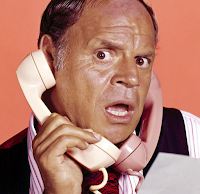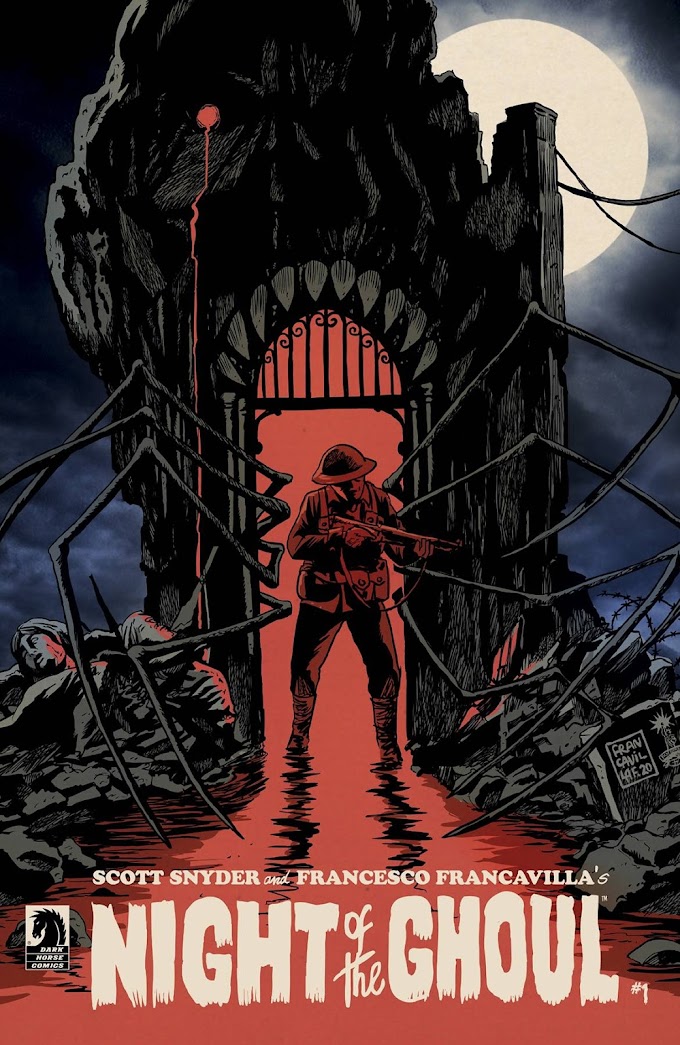- Rob M. shares Whit Taylor's Bad Vibrations comic.
- Scott C. wrote about Alex Toth's Bravo for Adventure.
- Rob K. reviewed 3 minicomics out of the Pacific Northwest.
- Rob M. read some Stan Sakai comics that Sakai did before he started Usagi Yojimbo.
- Emilia P. took a look at Ray Fawke's The People Inside.
- Rob M. shared Andy Warner's comics about coffee.
- Rob M. pointed out Lucy Bellwood's new Kickstarter campaign.
- Mark D. looked at Wart Book 2 by Ammar Al-Chalabi and Chris Welsh
- Emilia P. reviewed Emmanuel Guibert's The Photographer.
- At The Comics Journal, Rob K. reviewed Shirtlifter #5 by Steve MacIsaac, Jon Macy & Eric Kostiuk Williams.
- At Comics Bulletin, James. K. did Twitter sized reviews of the 7/22/15 and 7/15/15 new comic book releases.
- Mark D. continued to almost daily write about comics at The Last Askani.
** I'm on the final days of my summer vacation so this New York Times list of great summer comic book and strip reads may be a bit late for me but maybe there's still time for you to get a book on this list to read during your vacation. A couple particular favorites of mine from this list are Paul Pope's Batman Year 100 and Jeff Lemire's The Underwater Welder.
** I don't usually do Patreon drives but there are many things that I like about Tom Spurgeon's drive for The Comics Reporter that have made me decide to take the Patreon plunge. The first is that it is Tom Spurgeon. Spurgeon is a great ambassador for those of us who approach comics from a more journalistic or analytical viewpoint. I also like that Spurgeon is experimenting with a monthly PDF magazine and want to see what that will be like.
And as long as I've set up a Patreon account to support Spurgeon, I'm also supporting Graeme McMillian and Jeff Lester's Wait, What podcast campaign as well. What I like about Graeme and Jeff's campaign is that a percentage of what they raise goes back into supporting other creator's Patreon campaigns. I think that's a great use of this system that's been set up.
** Colin Smith has a good piece up about how comics can make talking heads interesting. It's utterly amazing how boring so many modern comics are because they don't know how to dynamically tell stories.
As more comics have tried to move into either a more cinematic or realistic style, too many writers and artists have lost track of just how to tell stories in ways that are unique to comic books. For as horrible and crass as some of Frank Miller's comics are, just look at the ways that he tells his stories. Exposition doesn't have to be just about characters talking. It'a about how the panels and characters move across the page.
** Chris Butcher writes about comics that so-called mainstream fans don't consider "real" comics.
So, the comics industry was able to successfully ignore the massive success and new audiences that the manga publishers brought with them. But you know who didn’t? Kids publishers. Scholastic Graphix. Papercutz. Abrams. First Second. Kids Can Press. Even Yen Press’ arm at Hachette. They saw that with the right conditions, you could get someone other than males aged 18-49 to read comics, and have it be incredibly successful. These publishers paid attention and put together imprints to publish original work specifically for the audiences that the comics mainstream insisted didn’t exist: Kids, girls especially, tweens and teens. And the books sold well. Won new audiences. A whole industry of “original graphic-novel” based creation sprung up that simply did not exist before the success of manga, the success of Bone at Graphix, of Twlight: The Manga at Hachette, Nancy Drew & Hardy Boys graphic novels, Binky the Space Cat, Diary of a Wimpy Kid, American Born Chinese. Or Smile, by Raina Telgemeier. Smile, which sat on the bestseller list for a year and was largely disregarded by the comics industry. Incredible bestsellers, many with outside-of-comics media attention, largely ignored, deliberately ignored. Because their success didn’t fit the paradigm. They weren’t comics. They were ‘for kids’.This reminds me of something that Deb Aoki tweeted a couple of weeks ago during Anime Expo.
as far as "comics press" in the US is concerned, Anime Expo didn't happen at all. 120K ppl packed the LACC + tons of new titles= [crickets]
— Deb Aoki (@debaoki) July 6, 2015
To which Chris Arrant, the current editor at Newsarama responded:
@debaoki Many conventions. There's a limited budget as to what to cover, dictated largely by traffic for previous coverage
— Chris Arrant (@chrisarrant) July 6, 2015
Full disclosure that I've been known to write reviews for Newsarama's Best Shots team.Comics are such a weird thing. It's so fragmented that it's hard to figure out what's what sometimes. O.k., it's hard to figure out what's what most of the time. There's just so much of it that I don't think anyone has a view of what's comics really is. Is it the direct market? Is it everything that falls into Scott McCloud's definition of sequential art? Is it an art form or a communication device? Is it superheroes? (Yes, in this day and age, that's a legitimate question that's probably more relevant now than it was 10-15 years ago because all most people see are superheroes.)
Comics are so much and every one is different in wonderful ways. To have a catholic view of comics is actually pretty difficult because there is so much of it and it's coming at us in so many different ways today; comic shops, book stores, web comics, digital comics, manga, BD, mainstream, alternative, independent, conventions, festivals, magazines, comic racks, graphic novels, OEL and untranslated. The list just goes on and on.
It's hard to know where to begin and end when it comes to paying attention to comic books. I'll admit that superhero comics books are still just too damn easy for me. They're the junk food that goes down oh so easily that I can completely turn my brain off and dive right into them. I read them because they're comfortable, familiar and safe.
Of course, I read a lot of other comics because they're uncomfortable, unfamiliar and dangerous. And in the end, I probably get a lot more out of those than I do out of the superhero comics. Secret Wars is fun (there, I said it publicly) but honestly, there's nothing to it. It's Jonathan Hickman and Esad Ribic producing empty calories that just go to your waist in the same bad ways that McDonalds does. Remember that documentary Super Size Me? That's Marvel. That's DC. And it's probably most of the direct market even if Dark Horse, Image and Oni Press are the equivalent of ordering off of the more nutritional parts of the menu. You know, the stuff that doesn't taste as good but you tell yourself that it's healthier and better for you. They're the salads to Marvel's Big Mac.
 |
| Box Office Mojo's All Time World Wide Grosses as of July 23rd, 2015 |
Three out of Ten of the top largest grossing movies are based on Marvel Comics right now. This is the world that we wanted right? And look at the rest of that list. There's not a lot of variation in the type of movies that these are. Frozen and maybe Titanic are the outliers, aren't they?
Butcher and Aoki are right to call out comic fandom for what they will and won't talk about or consume but let's not act like it's just comic fans that are so myopic in their viewpoints. As Arrant pointed out, the coverage at Newsarama is at least partially dictated by the hits that certain stories gets and that's the audience deciding what it wants. It's the digital version of voting with their wallets.
We're well into an age where being a comic fan in 2015 is fundamentally different than being a comic fan in 2005. It's much more than the difference between fans in 2005, 1995, 1985, 1975 or 1965 ever were. As the fanbase has shifted and evolved in the past ten years, the hardline camp of "true comic fans" have remained static and they're the ones that drive traffic to sites like Newsarama, Comic Book Resources and Bleeding Cool. They're not necessarily "comic fans" but more of a subset of it-- let's call it "direct market fans" even though they will probably chafe at that designation. And Newsarama, CBR and Bleeding Cool are direct market sites. And the comic book movies that are becoming very popular are the direct market movies.
It's all too easy to have a narrow view of comics even as we're celebrating diversity. Diversity means so much more than Ms. Marvel or Batgirl. It means Smile and Drama. It means Sunny and it means One Piece. It means Noah Van Sciver and Whit Taylor. Diversity in comics means getting out of the safety of comics that are probably written and drawn by people who look like you, who have read the same things that you've read and have the same worldview that you have. Diversity is great and it's about time that we accepted it more than as a token gesture of development of comics.
Comics are changing greatly right now. If you're not, I'd like to say get ready to be left behind but I don't think that's going to happen. Most likely if you're not flowing with the changes, the types of comics that you've always read are going to always be produced and you're always going to have your safe places on the internet. But if you're not willing to change because you like what you like (and honestly, there's nothing wrong with that,) just get out of the way of those who are trying to find the new, the diverse and the challenging.
If comics are as simple as Scott McCloud's definition of them, comics should be everything we want them to be and they should be better than they are now.









![Sweat and Soap [Ase to Sekken] by Kintetsu Yamada](https://blogger.googleusercontent.com/img/b/R29vZ2xl/AVvXsEgMnQltxjWqGS1_duhCp9Er1a0NbALuSFrqvjaV4_PjN_w67xCGghYt-l0qKyqTH7Ei7gbq_mxVq8aPAuOiyaArwAMLJWhpGmOYaARUBnwvjmv2-ZIe20m_zR5CvKnPdI6US_AuOnmi3gSX/w680/57525895-BA7E-4EF8-9FE4-89F9C164E1A4.jpeg)

